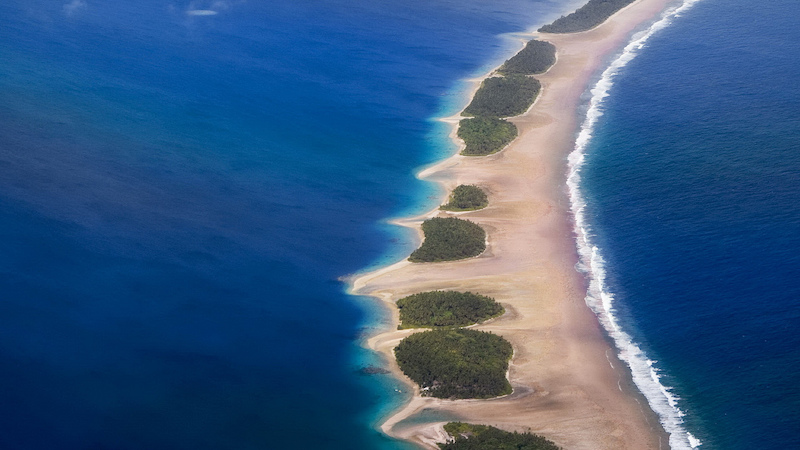The low-lying Marshall Islands released a comprehensive climate strategy to go carbon-neutral by 2050 on Monday, becoming the first island nation to do so.
Located close to the equator in the Pacific, the Marshall Islands consist of 1,156 islands and islets strewn across two million square kilometres in the ocean. They are one of the world’s most exposed nations to sea level rise, with an average elevation of just six feet above sea level.
In a statement, the government said its proposals paved the way for the Marshall Islands to increase their 2025 climate target before 2020.
“Once again, my country has shown that if one of the smallest and most isolated nations can do it – so can everyone else, including the big emitters. Making the transition to net zero emissions makes sense for our global economy and for our environment, as well as for our people and our planet,” Hilda Heine, the president of the Marshall Islands, said.
Dubbed Tile Til Eo – “Lighting the Way” in Marshallese – the plan would slash emissions in the transport, energy and waste sectors. It singled out waste as “growing problem” in the nation and urged lawmakers to explore ways to produce energy from it.
What happens in the next few months will impact the future of the Paris Agreement and the global climate
CHN will be there keeping you informed from the inside.
If you value our coverage, please consider helping us. Become a CHN patron for as little as $5 per month.
We have set up a Patreon account. It’s a simple, safe and easy way for you to become part of a community that will secure and guide our future.
Thank you!
The plan also notes that one third of the country’s domestic emissions are from shipping. The nation is the second largest shipping registry in the world, lending its flag to thousands of cargo ships, oil rigs and tankers. It has also campaigned for the industry to reduce its impact on the climate.
Full decarbonisation of the global shipping sector “appears to be unfeasible in the medium term”, said the plan. But it added that “successful adoption of nascent low- or zero-carbon sea transport technologies at home could have ripple effects across the international shipping sector at large”.
Authors suggested the Marshall Islands issue a National Adaptation Plan by 2019 that would set out – and budget – measures to adapt to impacts of climate change.
Legislators should consider inscribing the measures into law and installing a system to review them, the document added. The United Kingdom’s 2008 Climate Change Act, which monitors climate efforts every five years, would provide a model for such a tool.
The Marshall Islands are the tenth country to submit a long-term decarbonization pathway to the UN Framework Convention on Climate Change as called for under the Paris Agreement. Following the release of the report, Hilda urged all countries to follow in the Marshall Islands’ footsteps by raising their 2025 climate targets.
